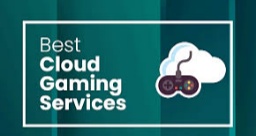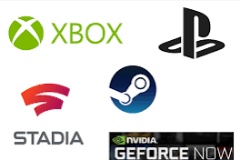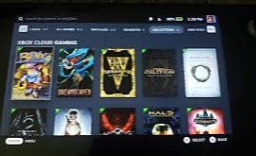Cloud gaming services have revolutionized the way we play video games, allowing users to access high-quality, graphics-intensive games without the need for expensive hardware. Some of the best cloud gaming services available on the market include NVIDIA GeForce Now, Google Stadia, and Xbox Cloud Gaming. NVIDIA GeForce Now stands out for its impressive library of supported games and its integration with popular digital gaming platforms like Steam and Epic Games Store. Google Stadia offers a seamless gaming experience with its proprietary data centers and wide range of games available for purchase. Xbox Cloud Gaming, on the other hand, allows users to stream games from the Xbox Game Pass library, offering a great value for gamers looking to access a diverse selection of titles. Overall, these cloud gaming services provide an accessible and convenient way for gamers to enjoy their favorite games on any device, making them a compelling option for both casual and hardcore gamers alike.
The Cloud Kingdom: A Guide to the Best Cloud Gaming Services in 2024
The landscape of video games is constantly evolving, with advancements in technology blurring the lines between accessibility and high-end experiences. Cloud gaming stands as a prime example of this shift, offering a future where anyone with a decent internet connection can tap into the power of remote servers and play AAA titles without needing a top-of-the-line PC or console. But with a growing number of cloud gaming services vying for your attention, choosing the right one can be a daunting task.
This comprehensive guide will delve into the world of cloud gaming services, exploring the functionalities, strengths, and weaknesses of the top contenders. We'll equip you with the knowledge needed to navigate the cloud kingdom and select the perfect platform for your gaming needs.
Understanding Cloud Gaming
At its core, cloud gaming operates similarly to how streaming services like Netflix deliver movies and TV shows. Instead of video content, however, cloud gaming platforms stream video game data from remote servers directly to a user's device. These servers house powerful hardware – typically high-end graphics cards (GPUs) and processors (CPUs) – capable of running even the most demanding games at high settings. The processed video and audio are then compressed and transmitted over the internet to the user's device, allowing them to play the game without needing a powerful computer or console themselves.
This approach offers several advantages for gamers:
Accessibility: Cloud gaming eliminates the need for expensive gaming PCs or consoles. Users can play on a wider range of devices, including laptops, tablets, smartphones, and even smart TVs, provided they have a stable internet connection. This opens up the world of high-end gaming to a broader audience who might not have been able to afford the initial hardware investment.
Performance: Cloud gaming platforms offer access to powerful hardware that most home users wouldn't realistically own. This translates to smoother gameplay, higher resolutions, and the ability to experience games with advanced graphical features that might not run well on local machines.
Convenience: Cloud gaming eliminates the need for lengthy downloads and installations. Games are readily available to play instantly, and saves are typically stored on the cloud servers, allowing users to pick up their progress from any device.
The Contenders in the Cloud Coliseum
Several cloud gaming platforms are currently vying for dominance in the market, each with its own unique value proposition. Here's a breakdown of the top contenders:
Nvidia GeForce Now:
Strengths: Offers a vast library with integration into popular PC game stores like Steam and Epic Games Store, allowing users to play their existing libraries on cloud servers. It boasts excellent performance and supports high resolutions and frame rates.
Weaknesses: Requires users to already own the games they want to play, and the free tier has limitations on session length and resolution. May not be as beginner-friendly as some curated services.
Microsoft xCloud (part of Xbox Game Pass Ultimate):
Strengths: Tight integration with the Xbox ecosystem, offering access to a library of Xbox titles playable on various devices for Xbox Game Pass Ultimate subscribers. Offers a familiar experience for Xbox gamers and a good selection of AAA titles.
Weaknesses: Library primarily focuses on Xbox titles, potentially limiting options for non-Xbox gamers. Reliant on Xbox Game Pass subscription, which might not be ideal for users who only want to play specific titles.
Sony PlayStation Now:
Strengths: Offers a library of PlayStation games playable on various devices, including PCs, catering specifically to PlayStation fans. Allows users to experience exclusive PlayStation titles without needing a console.
Weaknesses: Limited library compared to some competitors, and may not be as attractive to users who don't already own a PlayStation console. Focuses primarily on older titles, with fewer recent releases compared to some platforms.
Amazon Luna:
Strengths: Offers a curated selection of games through subscription channels, with a focus on accessibility and a user-friendly interface. Integrates well with the Amazon ecosystem for Prime members.
Weaknesses: Limited game library compared to some competitors. Relies on a subscription model, which might not be ideal for users who only want to play a few specific titles.
Google Stadia:
Strengths: Focuses on integration with YouTube and controller technology, offering a unique user experience. Offers a free tier with limited access to some games.
Weaknesses: Smaller game library compared to some competitors. Has faced challenges with user adoption since its launch, and the future of the platform remains uncertain.
Other Notable Mentions:
Shadow: Offers a unique approach, providing users with access to a virtual PC in the cloud. This allows users not only to play games but also to use other demanding software programs.
Choosing Your Cloud Champion: Factors to Consider
With several strong contenders in the cloud gaming arena, selecting the right platform hinges on your individual needs and preferences. Here are some key factors to consider:
Game Library: The size and variety of games offered by a platform are crucial. Do they have the games you want to play, or are they missing some of your favorites? Consider the balance between AAA titles, indie gems, and older classics.
Cost: Cloud gaming services often utilize subscription models, with varying tiers offering different benefits like access to specific libraries, resolution options, and session lengths. Compare pricing structures and consider if a subscription model aligns with your gaming habits.
Performance: Look for platforms that offer high resolutions, smooth frame rates, and low latency (lag) for a responsive gaming experience. This depends heavily on your internet connection speed and stability.
Device Compatibility: Ensure the platform you choose is compatible with the devices you plan to use for gaming. Some platforms offer wider device support, while others might be more limited.
Ease of Use: Consider how user-friendly the platform is. Platforms with curated libraries and simple interfaces might be ideal for beginners, while more advanced users might prefer platforms with customization options.
Existing Game Library Integration: Do you already own a large library of games on PC storefronts like Steam or Epic Games Store? Platforms like GeForce Now allow you to leverage your existing library on cloud servers, while others require separate purchases.
Additional Features: Some platforms offer additional features like social integrations, cloud saves, and controller support. Consider which features are important to you for a complete gaming experience.
Beyond the Basics: Exploring the Future of Cloud Gaming
The future of cloud gaming holds immense promise, with the potential to revolutionize how we access and play games. Here's a glimpse into what might lie ahead:
Improved Performance: Advancements in cloud computing technology and data compression techniques will continue to enhance performance, offering even higher resolutions, frame rates, and lower latency for a virtually lag-free experience.
Expanded Game Libraries: As cloud gaming becomes more mainstream, collaborations between platforms and game developers will likely lead to a wider selection of games available on the cloud, catering to diverse genres and interests.
Evolving Business Models: We can expect to see innovative business models emerge, with options beyond simple subscriptions. This could include pay-per-play options for specific titles, microtransactions within cloud-based games, or bundled subscriptions that combine cloud gaming with other services.
Cross-Platform Compatibility: The dream of seamless cross-platform gaming might become a reality. Imagine seamlessly switching between your PC, phone, and console, picking up your progress in the cloud regardless of the device you're using.
Read Also: Master Your Gaming Skills with Luna Cloud Gaming: A Step-by-Step Guide
Impact on Hardware Manufacturers: The demand for high-end gaming PCs and consoles might decline if cloud gaming becomes the preferred method for many gamers. However, a market will likely remain for powerful hardware for developers, content creators, and users who prioritize local storage and customization options.
Conclusion: Ascending to the Cloud Gaming Throne
The rise of cloud gaming presents a unique opportunity for the video game industry. By offering accessibility, performance, and convenience, it has the potential to broaden the gaming audience and redefine how we play games. While challenges remain concerning game libraries, internet infrastructure, and business models, advancements in technology and strategic partnerships can pave the way for a future where cloud gaming reigns supreme.



